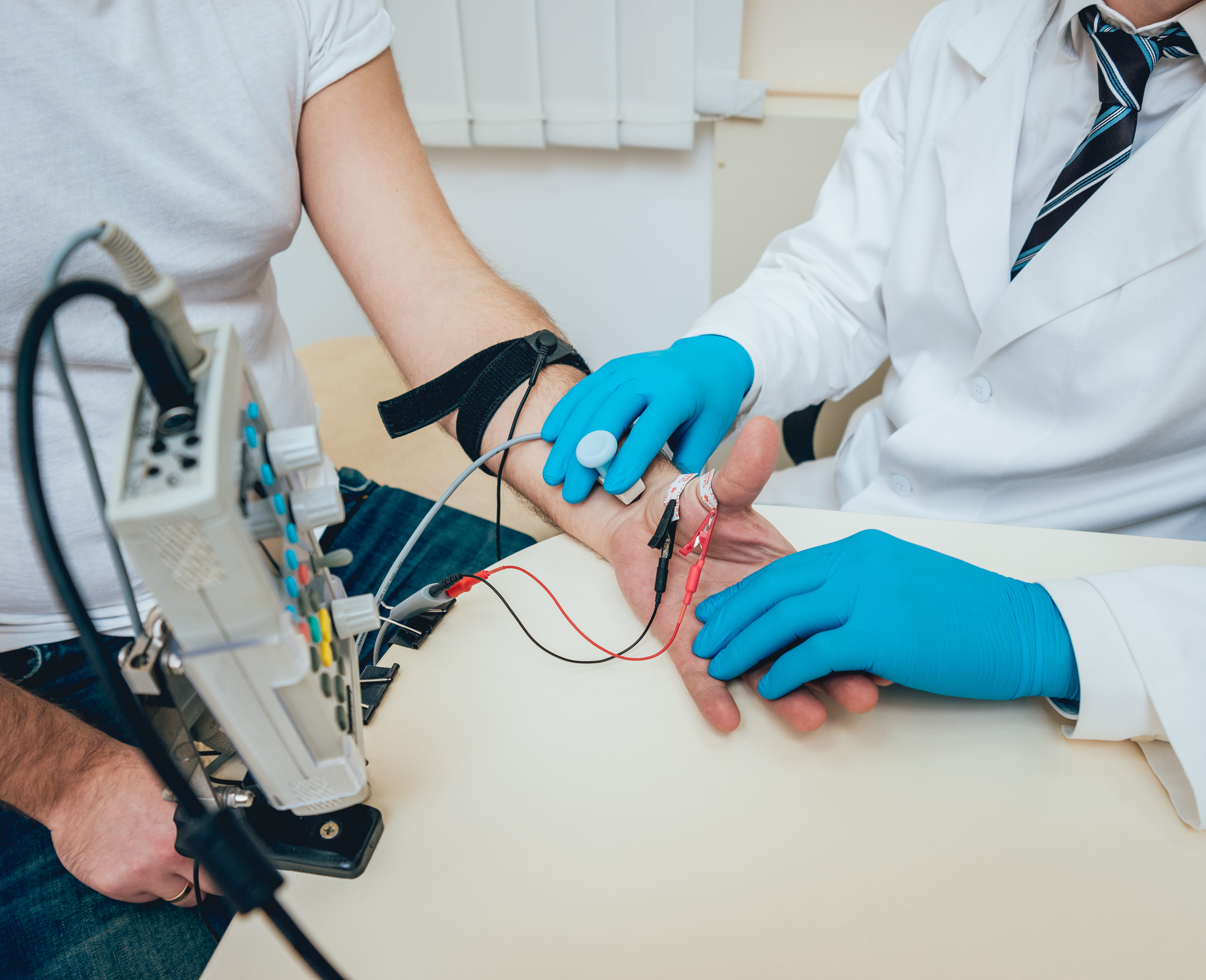
Wear loose and comfortable clothing on the day of the test. Disorders that affect the nerve root, such as a herniated disk in the spineĪt the time of an NCS/EMG appointment, the patient’s skin should be dry and clean without lotions, oils or creams.Disorders that affect the motor neurons in the brain or spinal cord, such as amyotrophic lateral sclerosis or polio.Disorders of nerves outside the spinal cord (peripheral nerves), such as carpal tunnel syndrome or peripheral neuropathies.Diseases affecting the connection between the nerve and the muscle, such as myasthenia gravis.Muscle disorders, such as muscular dystrophy or polymyositis.


Symptoms such as muscle pain or cramping, muscle weakness, difficulty buttoning clothes, handling objects, or walking may also indicate the need for a NCS/EMG.ĮMG results are often necessary to help diagnose or rule out a number of conditions such as: If you have numbness, decreased sensation, tingling, radiating pain, or burning, your doctor may refer you for a NCS/EMG.


 0 kommentar(er)
0 kommentar(er)
